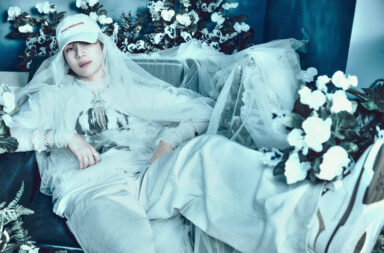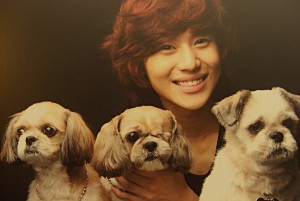 Hello and welcome back to another Seoulbeats Exchange!
Hello and welcome back to another Seoulbeats Exchange!
Following our last exchange on the still fairly new idol group B1A4, I’ve decided to turn my attention to idols who are also young, but in terms of age rather than experience: maknaes.
Considering that SHINee is my be all and end all when it comes to K-pop, I mostly learnt about maknaes from none other than Lee Taemin himself. Having debuted just months before his 15th birthday,he was often referred to as the maknae of K-pop itself, only relinquishing that title once the K-pop rookie flood of ’11 happened (and which is still ongoing). Much a deal was made about his involvement in Hello Baby: “A baby looking after a baby,” they said, and this fuss was understandable from a Western perspective — I mean, he was pretty young.
But it wasn’t until SHINee decided to play the age swap game that the importance of age in influencing social interactions became evident. Suddenly Taemin “hyung” was dropping honorifics, while eldest Onew was mercilessly bossed around . Though highly exaggerated in this case, the role of the maknae was becoming more apparent to me. But all the same, I was more curious of just how this maknae concept worked in not only general society, but within the K-pop microcosm itself.
So, to gain more an insight of how fans, especially international fans, regard maknaes, I’ve roped in Patricia, Nicholas, Fatouma and Bethany. Their insights are below.
1. What were your first thoughts when introduced to the term “maknae?”
Fatouma: When I first got into K-pop, I had zero knowledge about Korean culture or anything Korean-related, so the age hierarchy was completely new and foreign to me; but, thanks to prior experience with Asian cultures with a similar emphasis on age, it was easy to get used to. When I first heard the word maknae, I didn’t understand how one person’s talents could lie in their age. Like how you’d have a singer, dancer, and then the maknae? It seemed a bit pointless to me, to have to target a single member out for their age, but in a Korean cultural context, it makes perfect sense to distinguish between the members by age and create a group dynamic accordingly.
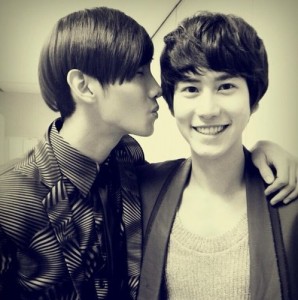 Patricia: Truth be told, the only thought I really had was the question: “Is it spelled ‘maknae’ or ‘magnae’?” Considering the numerous titles there are in reference to age in the Korean language, it comes to no surprise that there would be a specific term to refer to the youngest member of a group. However, it wasn’t until I was more involved in K-pop fandom did I realize that the term “maknae” could carry deeper connotations.
Patricia: Truth be told, the only thought I really had was the question: “Is it spelled ‘maknae’ or ‘magnae’?” Considering the numerous titles there are in reference to age in the Korean language, it comes to no surprise that there would be a specific term to refer to the youngest member of a group. However, it wasn’t until I was more involved in K-pop fandom did I realize that the term “maknae” could carry deeper connotations.
Bethany: I believe the first time I figured out what the heck a maknae was was during my Kyuhyun obsession. And Kyu isn’t a terrific example of a maknae with his bossing around of other members/cheekiness, so I just assumed that all maknaes were these babies of the groups that got to push everyone else around. The next maknae I was introduced to was Changmin, so… I just kept thinking that way until paying a little more attention to some of the other groups.
2. In the context of K-pop, what do you perceive the maknae’s role to be?
Nicholas: Common character roles include the youngest one to provide the group with the face of youth or the one who gets away with many things due to age, and hence lends a face of vulnerability to the group. However, if a maknae displays skills beyond his/her age, it could add to the impression that the group is very skilled, for even the youngest has to display core competencies to survive in the group.
Patricia: At its purest level, I don’t have any expectations for a maknae apart from being the youngest member of the group by birth. However, it seems that there are certain traits that a stereotypical maknae ought to have. For instance, s/he needs to be good at aegyo, sucking up to the hyungs/unnies, being bratty, and so forth. But at the same time, it’s evident that K-pop itself is well-aware that this is a huge stereotype. It’s sometimes amusing to see how K-pop acknowledges the contradictions and ironies in this stereotype when K-pop artists poke fun at “unconventional” maknaes that don’t exhibit these stereotypical traits.
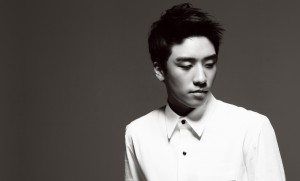 Bethany: I think that as groups mature and evolve, so does the role of the maknae. For example, when Big Bang grew out of their innocent hip hop pop phase (yes, that existed), YG had Seungri release some solo material that sold him as this manly, sexy guy who didn’t seem anything like Big Bang’s maknae. And if you called Seungri innocent now — well, you’d probably be looked at by other fans like you were crazy. I feel like for more mature groups, the maknaes are allowed to be more mature in how they act. In girl groups, however, maknaes seem to be expected to be innocent and cute forever. Seohyun‘s a full-grown woman but people still look at her like she’s this untouched good girl.
Bethany: I think that as groups mature and evolve, so does the role of the maknae. For example, when Big Bang grew out of their innocent hip hop pop phase (yes, that existed), YG had Seungri release some solo material that sold him as this manly, sexy guy who didn’t seem anything like Big Bang’s maknae. And if you called Seungri innocent now — well, you’d probably be looked at by other fans like you were crazy. I feel like for more mature groups, the maknaes are allowed to be more mature in how they act. In girl groups, however, maknaes seem to be expected to be innocent and cute forever. Seohyun‘s a full-grown woman but people still look at her like she’s this untouched good girl.
3. What is the appeal of the maknae, and how does a company market their maknae?
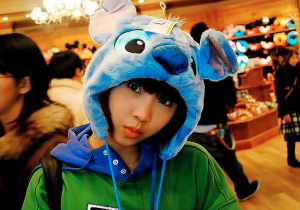 Patricia: The appeal of the maknae can only be read in the context of the entire group. I think it’s somewhat impossible to market a maknae without relying on the traditional stereotypes without really exposing the relationships and interactions that the maknae has with the other members of the group. However, this doesn’t mean that companies don’t try — when a group debuts, the maknae is almost always marketed as aegyo king/queen, but I really doubt that marketing a member based on a set of largely debunked stereotypes is all that effective.
Patricia: The appeal of the maknae can only be read in the context of the entire group. I think it’s somewhat impossible to market a maknae without relying on the traditional stereotypes without really exposing the relationships and interactions that the maknae has with the other members of the group. However, this doesn’t mean that companies don’t try — when a group debuts, the maknae is almost always marketed as aegyo king/queen, but I really doubt that marketing a member based on a set of largely debunked stereotypes is all that effective.
Fatouma: The maknae is the baby of the group, so with that in mind, fans seem to gravitate towards that member and dote upon them, mentally taking care of them and wanting to preserve their innocence. A company usually tries to push out that concept, with making the maknae automatically the cute member, and performing aegyo on spot. But sometimes that can easily fail if there is a member that can out-perform the maknae on cuteness, and do it a lot more easily and better, especially when the maknae’s personality doesn’t match up well with the maknae ideal. (see DBSK‘s Changmin)
Bethany: A good example of how maknaes are perceived is how fans regard Taemin of SHINee. If you think of the group as a family, you can designate roles for each of the members. Key is typically thought of as the “mom,” Jonghyun as the “dad,” and Onew as the derpy older sibling or something. But Taemin’s appeal lies in the I-am-the-baby-I-need-to-be-protected-from-the-world vibes that he gives off. Companies know that most fans of boy groups are girls, and so they use this whole maknae thing to appeal to the nurturing side of their fans by having the other members take care of the youngest member. It gives the whole group a vulnerable aspect, like Nicholas mentioned (see previous question).
4. Maknaes are increasingly being categorised into different kinds; what do you think of all these various “types?” that are out there?
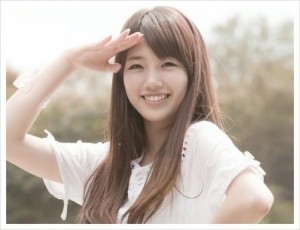
Nicholas: This largely depends again on the group. Where groups go with bolder images, the maknae is usually the one that lends a softer side to their images, more often with their weapon of choice — the disarming smile (see Miss A‘s Suzy or B.A.P‘s Zelo). Then there are the maknaes who display intelligence beyond their years, and have a air of educated cool around them (See SNSD‘s Seohyun or DBSK’s Changmin). Then there are those who use age to get away with everything and anything (EXO-K’s Sehun or The Wonder Girls‘ Sohee in her earlier years).
And finally there are the maknaes who are late bloomers (Big Bang’s Seungri or 2AM‘s Jinwoon) or slow burners who just need a bit more time to find their footing (like After School‘s Gaeun.)
Fatouma: I’m always interested with the various types of maknaes that deviate from the default cute factor. There are the fearless maknaes like Infinite‘s Sungjong, and you have the evil maknaes a la DBSK’s Changmin (once he got the cute title stripped from him) and Super Junior’s Kyuhyun. I think that most types were brought about because not every maknae aren’t perfect fits for the stereotypical cute maknae, so these types are brought about to help these poor maknaes from having to do aegyo constantly. But most of them will always have to suck it up upon debut.
Bethany: Different types of maknaes are interesting — there are the ones with stronger personalities (Kyu, Changmin, Sungjong with his cheek), the visually-pleasing ones, and then ones that just kind of… are there. I feel like you can’t truly categorize a maknae because each group has a different feel and their maknae therefore gives off an image in accordance with that. Cute maknaes are actually kind of boring — the maknaes that really catch people’s attention are the ones who do their own thing a la Mir. I’m sure his hyungs have a ton of control over what he says and does.
5. What are your thoughts on maknaes in groups with a larger age gap, and those in a group with a smaller age gap? Are there any differences in how these groups are managed, or in the group dynamic itself?
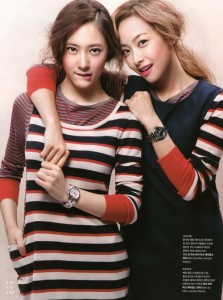 Patricia: It’s a bit difficult to answer this question, as there aren’t a lot of major K-pop groups with large age gaps. The only one that really comes to mind is f(x), where there’s a seven year age gap between the members. In my opinion, f(x) has a very interesting group dynamic, but that group dynamic is more evident through Victoria, the oldest and the most “isolated” in terms of age, rather than Krystal, the youngest.
Patricia: It’s a bit difficult to answer this question, as there aren’t a lot of major K-pop groups with large age gaps. The only one that really comes to mind is f(x), where there’s a seven year age gap between the members. In my opinion, f(x) has a very interesting group dynamic, but that group dynamic is more evident through Victoria, the oldest and the most “isolated” in terms of age, rather than Krystal, the youngest.
That aside, even groups with a smaller age gap still maintain an age hierarchy; it’s almost a requirement when it comes to just speaking Korean. However, I would imagine that groups with a smaller age gap would have an easier time interacting with each other — not because of any cultural reasons, but because, well, that’s just how social interactions everywhere work, right? A 17 year old and an 18 year old could probably have a decent jinshim (heart to heart) talk, whereas it would be slightly more awkward for a 17 year old and a 26 year old to do the same.
Nicholas: The larger the age group, the more the maknaes tend to play the age cards or the “slightly less skilled” excuses. Where ages are rather matched, the group tends to take on a more egalitarian nature. Like for example SNSD,where most of whose members are roughly at the same level where having a say in the group in concerned.
As for day to day activities, I would also agree with Patricia that the usual seniority play in Korea exists in groups. Watching any K-pop group documentary, it’s always the maknaes that end up with the metaphorical smaller slice of the pie. Not that there is anything wrong with reflecting the need for respecting seniors within a group, though.
Fatouma: I think the only difference in promotions between groups with shorter age gaps than groups with larger age gaps is that it might take longer for a group to mature conceptually and musically, for the sake of the maknae. But then you have anomalies like B.A.P that don’t take the age gap into consideration and continue with a manly concept. They had Zelo do a crotch grab for “No Mercy;” oh, the humanity! But I think it’s better for groups to try and shorten the gap, especially when they’re all of a young age, because it’s always more fun to watch all the members grow up together and go from doing simple concepts to much more complex and mature concepts.
Bethany: Again, I agree with what Nicholas said. When the maknae is roughly about the same age as the other members, there’s less of that doting factor and more of what seems like a friendship. When the maknae is significantly younger, then there’s a lot of that doting behavior we talked about. After all, it’s unlikely for someone over twenty years of age to be friends with a sixteen-year old of their own free will. People change a lot during their teenage/young adult years, and it’s easier for them to relate to someone at the same place in life as they are.
——————————————-
The notion of “maknae” being a term that can only be used in terms of comparison is an interesting, and increasingly accurate, one. The traditional archetype of a maknae creates a ready-made niche for appealing to fans, but the different ways in which the idols’ individual characters colour this role mean that this view is changed considerably. Especially now with more K-pop groups active, there is a greater variety of people marked as maknaes, and having such a large number weakens the stipulated status quo of the cute and innocent maknae. In this respect, the exponential increase in K-pop acts can be seen as something of a blessing for diversity of personalities.
 In fact, it could be said that the freeing the youngest member of a group from the maknae-associated traits allows other members who have a greater affinity for these traits to freely express them — especially cuteness. As Fatouma mentioned (twice), Junsu‘s natural cuteness overtook Changmin’s age, while 2NE1‘s unni Park Bom is often doted on by fans for her cute mannerisms and remarks and innocent demeanour; and we’re even seeing a repetition of that today in a more eventful fashion, with BtoB‘s Il-hoon taking on the “aegyo” mantle after his ‘counting game’ (“Kiyomi!”) started taking over
In fact, it could be said that the freeing the youngest member of a group from the maknae-associated traits allows other members who have a greater affinity for these traits to freely express them — especially cuteness. As Fatouma mentioned (twice), Junsu‘s natural cuteness overtook Changmin’s age, while 2NE1‘s unni Park Bom is often doted on by fans for her cute mannerisms and remarks and innocent demeanour; and we’re even seeing a repetition of that today in a more eventful fashion, with BtoB‘s Il-hoon taking on the “aegyo” mantle after his ‘counting game’ (“Kiyomi!”) started taking over the world K-pop.
However, there are also instances where an idol’s naturally cute looks is used by the company to fit that idol into a maknae-like trope, whether they are genuinely like that or not. Exo-M‘s Lu Han, despite being the second-oldest member of the dozen that make up Exo, is frequently dressed to look younger than his age to complement the fact that he already looks younger than his age. I have already discussed my sense of betrayal surprise upon discovering that the maknae of f(x) was Krystal rather than Sulli, as I initially believed (though considering that both are born in the same year, they are both maknaes.) In Sulli’s case especially, I can see most apparently the use of the maknae title as a way to mask a lower level of performance ability (at least initially.)
Before I conclude this exchange, one last thing I would like to point out is the curiosity of the older maknae. Though we are now seeing maknaes of the first and early second generations as mature adults, they were initally introduced to the K-pop scene as pretty young things. But some, notably Brown Eyed Girls‘ Ga-in and Sunny Hill’s Kota, were already in their 20s when their groups found fame and success. Unlike most maknaes, they are at an age where they can put on mature performances without severe repercussions, but both (especially Kota) can become (stereo)typical maknae, talking in a babyish voice and even being doted on by their unnis. Whether this is natural for them, or part of what they see as fulfilling their duties as a maknae, watching this dichotomy is interesting to say the least.
What are your thoughts on maknaes, readers? Do you have a favourite type? And what do you thing of the concept of “maknae” being divorced from age? Leave your thoughts below!
(KBS, Kyuhyun’s Twitter, Marie Claire, MBC, MTV, TS Entertainment, Visit Korea, YG Entertainment)

